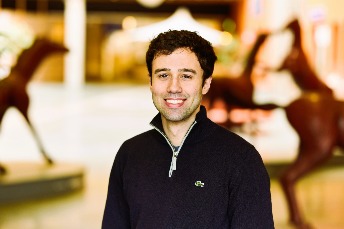
Well-being
Student well-being in times of COVID-19. Validation of predictors within the university learning environment
Onderzoekers: Lisa Kiltz & Miranda Trippenzee
Since March 2020, measures surrounding COVID-19 pandemic have resulted in emergency remote teaching with, among others, fewer opportunities for interpersonal contact (Burns et al., 2020). This has caused changes in the learning environment and students' functioning in the academic system, which may likely lead to changes within their well-being. The current study aims to map student well-being in times of COVID-19, identifying both individual factors and structural factors in the learning environment. Previous research has identified several individual factors that may influence student well-being in times of COVID-19. Amongst those are tolerance to uncertainty, resilience (growth), self-compassion, and attention regulation. In addition to these three individual factors, various factors within the learning environment may influence students' well-being. A sense of autonomy, competence and relatedness- as described within the Self-Determination Theory - play a central role in students' well-being. However, in times of social distancing and online education, it seems essential to investigate the potential of an adjusted learning environment to further fulfill students’ needs. That is why we are aiming to investigate these factors as potential predictors for student well-being, operationalised as positive and negative affect as well as life satisfaction.
For more information and research output, see ResearchGate.
The first paper of this project is published in European Journal of Psychology of Education in Open Access. Read the paper here.
Wellbeing and performance @ the University of Groningen
Researcher: Piermarco Consiglio
A substantial body of studies has shown that both academic staff and university students experience low levels of well-being. My PhD project aims to find new ways to assess well-being, investigate what leads to low levels of well-being and identify ways to promote it. As a first step, my research group and I are working on the validation of a new instrument to assess university student burnout. This is particularly important because previous questionnaires showed many shortcomings. The insights provided by this project will contribute to further developing current knowledge on the well-being of academic staff and students in higher education.
Supervisors: Prof. dr. Joke Fleer (Department of Health Sciences, University Medical Center Groningen), dr. Ellen Jansen (Department of Teacher Education - Faculty of Behavioural and Social Sciences), dr. Marjon Fokkens (Department of Teacher Education - Faculty of Behavioural and Social Sciences).

| Last modified: | 06 March 2023 09.35 a.m. |
